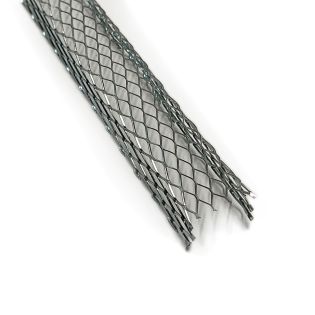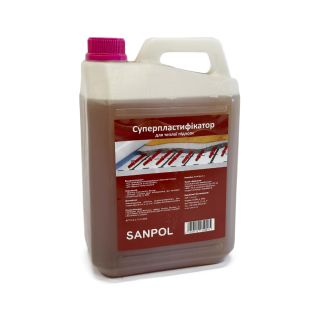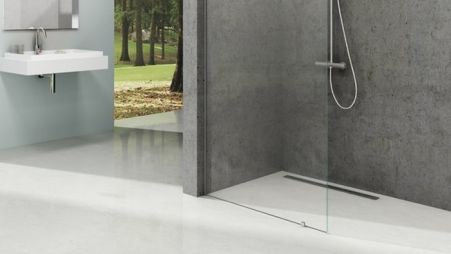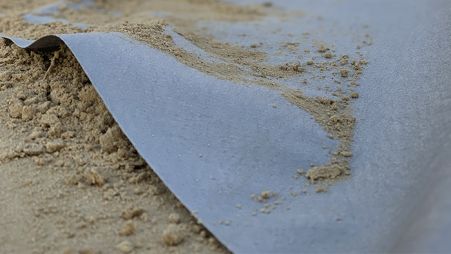Product code: 100005348
Manufacturer's article: 11119955
Polypropylene fiber 12 mm for concrete, 0.6 kg Sanpol
Fiber is used in construction to improve the quality characteristics of concrete. Fiber is added to the dry mixture or to the finished solution. At the same time, the fiber is easily evenly distributed, even with manual stirring. Polypropylene fiber is not exposed to acidic and alkaline environments, so it can be used for various construction cement-sand mixtures with additives, for gypsum mixtures, for gas and pentobeton, cellular concrete. Polypropylene fiber serves as a micro-reinforcement of concrete in order to minimize the number of microcracks (>95%) that manifest themselves at the initial stages of concrete solidification.
Advantages of using: prevents the appearance of microcracks during concrete shrinkage, prevents the formation of cracks after shrinkage
- increases abrasion resistance
- providing excellent appearance even after a long service life
- guarantees a smoother surface of the finished product
- increases frost resistance indicators
- increases resistance to shocks and other adverse mechanical influences
- it is a more profitable option in economic terms
Polypropylene fiber is able to accept shrinkage stresses and significantly reduce the occurrence of microcracks by reinforcing concrete. This is possible due to the unique microfibre structure of the material, which is evenly distributed in solution by hundreds of thousands of tiny fibers. Fiber is the smallest polypropylene fibers of a certain diameter and length. The technical parameters of the fiber ensure the maximum possible uniformity of product distribution in concrete. Due to this, the fiber creates a spatial micro-reinforcing structure in concrete.Moisture absorption is reduced by 33-44% and water release is reduced by effective hydration control. Due to the control of the water protrusion on the surface, the formation of cracks during plastic subsidence is reduced, thereby reducing the internal load. Fiber is used to increase resistance to low temperatures, since polypropylene fiber introduces a small amount of air into the concrete and reduces the number of water channels in the concrete, which allows free water to expand and contract in the freezing –thawing cycle. Concrete containing fiber has significantly greater impact resistance and resistance to splitting compared to conventional concrete. Fiber prevents damage to the edges of joints in concrete slabs and precast concrete structures, on various concrete surfaces, ribs and corners, reduces damage when removing the formwork.
Application:Industrial constructioConstruction of houses: foundation, plaster, mortars
- Road construction (bridges, overpasses, road surface)
- Hydraulic engineering construction (embankments, breakwaters)
- Underground construction (tunnels, metro)
- Foam concrete and other cellular types of concrete
- Mining industry.
Concrete with fiber is more resistant to bending after exposure to a temperature of 600 ° C for 1 hour.
The material is produced in packages of 0.6 kg, the recommended consumption per 1 m3 of screed is one package.
The fiber fibers have a length of 12mm.Packages of 0.9 kg are available.
|
SpecificationsControl concrete |
Concrete with fiber addition |
Difference in [%] |
Compressive strength after 7 days |
|
|
44,79 |
46,10 |
↑2,92Compressive strength after 28 days |
|
|
59,98 |
61,04 |
↑1,71Water resistance |
|
|
4,40 |
3,63 |
↑21,213,40 |
|
|
2,93 |
↑13,82Water resistance |
|
|
|
W – 10 |
W - 10 |
- |
|
Endurance |
53,27 |
56,62 |
↑6,29Loss of mass after 150 freezing cycles |
|
|
2,31 |
1,55 |
32,9 |
How to prevent cracking in the early stages of concrete curing?
Polypropylene fiber increases the ability of concrete to deform without breaking in the critical first 2-6 hours after laying. The number and size of cracks decreases, which further contributes to the preservation of the internal strength of concrete. At later stages, when the concrete has seized and begins to shrink, polypropylene fiber holds the end of the crack and reduces the risk of fracture.
Why use polypropylene fiber?
Fiber prevents damage to the edges of joints in concrete slabs and precast concrete structures, on various concrete surfaces, ribs and corners, reduces damage when removing the formwork.
Additional products
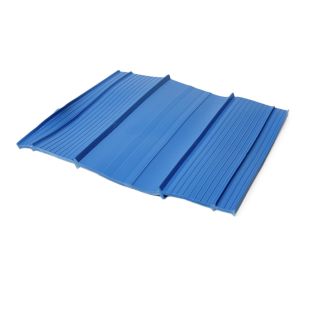 Internal waterstop VR 240 PVC for working seams, blue, 20 r.m., Sanpol Ukraine
Internal waterstop VR 240 PVC for working seams, blue, 20 r.m., Sanpol Ukraine
 Polyethylene construction film, density 150 microns in the form of a sleeve, 3x50 r.m., 150 m2
Polyethylene construction film, density 150 microns in the form of a sleeve, 3x50 r.m., 150 m2



